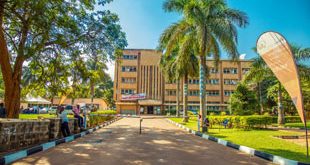But taking a patient’s pulse manually is now more often than not replaced by a probe attached to a patient’s finger.
Computers on wheels create a physical barrier for nurses when they use them to administer medications and access documents; and smart phones that support patient interviews have replaced the opportunity for a nurse to physically be present and develop a rapport with a patient. Meanwhile, virtual reality games and experiences are often used to distract patients undergoing painful procedures, when in the past a nurse may have held the patient’s hand.
Learning often takes place using simulation technology, where students interact not with actual human beings but with computerised mannequins. It is understandably difficult to respond to a mannequin as a patient with emotional needs. Students subsequently find it difficult, in a real clinical setting, to integrate desired communication skills – in particular, empathy.
University programs are often content-heavy, with graduates required to meet many competencies before they can be registered with professional bodies. The result can sometimes be that students in health professional courses tend to focus on clinical and technical skills at the expense of good communication.
The disruptiveness of technology may also be a factor affecting the ability of nurses and doctors to be empathetic and compassionate.
Technology encourages multitasking, which is good for efficiency, but can distract health care professionals from important interpersonal interaction with patients. Funding constraints in the university sector, decreasing clinical placement opportunities, the increasing complexity of patients, and a heightened awareness of ensuring patient safety and the associated legal responsibilities, all contribute to the increasing use of the controlled learning environment laboratories offer.
Learning in laboratories using technology is being developed to maximise experiences that develop empathy. Good communication needs to be role-modelled, taught and assessed in university programs and throughout clinical practice.
We need a better understanding of empathy development in health professions and more research on how to improve the situation with changing technologies. Most importantly, though, we need always to listen to our patients.
****
Sue Dean is a lecturer, University of Technology Sydney
****
editor@independent.co.ug
 The Independent Uganda: You get the Truth we Pay the Price
The Independent Uganda: You get the Truth we Pay the Price



George N. Kamau’s book: Why Beetles Roll Cow Dung (2003), comes to mind when I consider the symbiotic relation Ugandans have with Uganda. In the story, the beetle was able to get enough supply of cow dung in which to lay her horde of eggs. In turn, when the eggs matured into beetles, they got together and cleaned the cow’s home. They were the ever present, well paid janitorial and cleaning service. Uganda must be able, like the cow, to provide what is needed for the workforce to thrive. Most, if not all all patients who come before a health care provider need a social worker, a psychologist, an experienced proxy and a supportive family. Uganda has tended to place the burden of the “sick” on clinicians. A good referral system is necessary for services to be considered standard and fulfilling. Why should the primary physician be the one to give the dismal parting words when it should be the specialist in a long-term care facility. Uganda has very well trained health care providers but it has not provided the full range of services. The extended clan-family is another entity suffering from this burden. It is no wonder, Ugandans do not have reserve money to invest in say, stocks which may be considered a luxury or exotic. It is no wonder, we have we think those next to President Museveni “fell into things.” Uganda, needs to embrace quality indicators and allow this to inform policy and programming. We shall get oil, produce and export jet fuel and not sweet crude. But without the move toward quality in what we do, we shall eventually be like the proverbial A 52 year old person living with HIV in Bukomansimbi District is able to get her ARVs regularly and her children who work as touts in Kampala visit her regularly. They support their mother and the relatives in Bukomansimbi. They have been doing this since 1997. James Ogwaro holds an LLM and MBA. He lectures at Mukono University, Makerere University and Kyambogo. He has been doing this since 2008. Uganda has existing institutions which include the Taxing entity, civil service, the army, courts of law, Legislature, security agencies, the Executive and local governments and public agencies like the Schools, Hospitals, Road network, Central bank and security system. We may experience longevity but the difference is in the quality of delivery, service life and wellness of people. For the 52 year old person living with HIV in Bukomansimbi District may be able to get her ARVs regularly. Her children who work as touts in Kampala may be able to visit her regularly, but the state has to have disability support. It is breaking an already broken family and clan support system without putting back into it. James Ogwaro may hold an LLM and an MBA. He may have lectured at Mukono University, Makerere University and Kyambogo since 2008, but who looks into his burnout issues? How much deeper does he engage his students? What would his ideal student output? There is a direct link between stature, quality and state presence. Uganda is a good country, it has excellent leadership structures, is multi-ethnic and gifted by nature. All these are advantages if used well. Excellent health care workers will be quality providers if supported in executing their duty professionally.